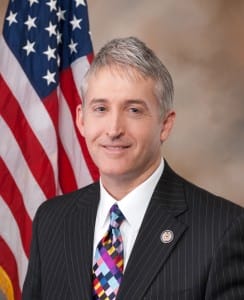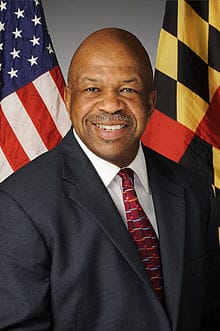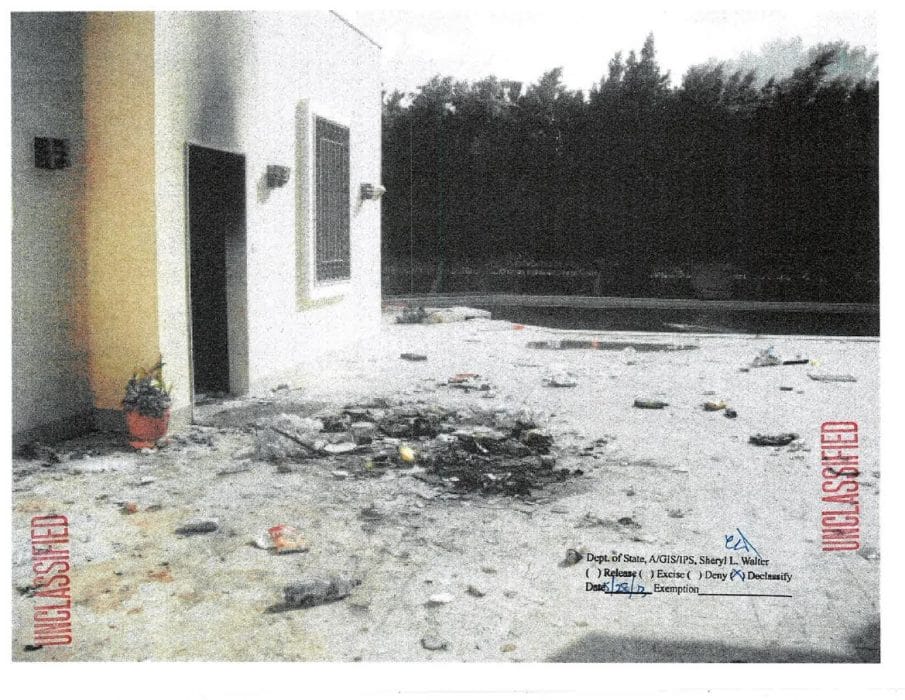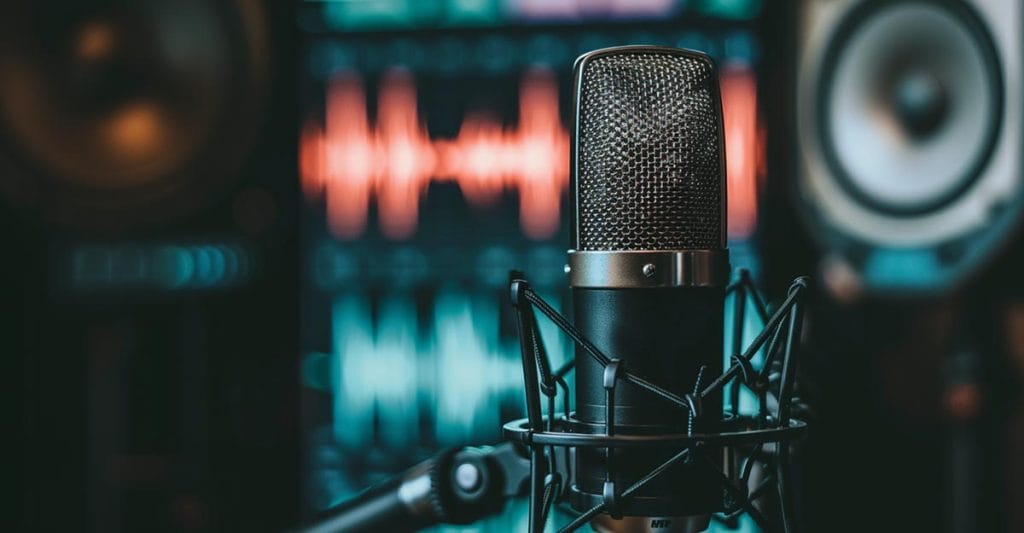[Above image: photo showing the aftermath of the Benghazi attacks.]
Chairman Trey Gowdy, R-SC
“If six people witness an event you can’t credibly report on the event by interviewing one of the six…you have to interview all of the witnesses.”

“It is interesting but not relevant to note the number of pages agencies have produced to Congress. What is interesting and relevant is whether agencies have produced all documents… Giving Congress 10,000 pages of material out of a universe of 100,000 pages of material does not get us any closer to issuing final report in a timely fashion.”
The State Department has provided 15,000 new pages… “a reminder that no previous standing committee compiled or a had access to a complete record of events which is precisely why the speaker constituted a select committee.”
“I want to know when the agencies are going to respond with the requests. I have zero interest in producing a product that is incomplete. We need to access that info now. Talking to only some of the witnesses will not work. Accessing only some of the documents will not work. If you want all of the truth you need all of the information…it is going to be done.”
Ranking Democrat Elijah Cummings, D-Maryland
“I agree with you that we need to have all the information. We need to have all the documents. We need to have everything that you just talked about sooner rather than later.”

“I’m a bit saddened to report there are major problems with this committee and its work. Concerned about ‘partisan path’ this committee has taken over the past year that undermines the credibility of the investigation itself…We can no longer remain silent.”
During the House Oversight Committee’s investigation into Benghazi, “ridiculous allegations were made with no evidence to back them up.”
“The chairman said he would transcend politics…Since then, Democrats have been excluded from core components of this investigation… We were stunned to hear chairman and his staff has interviewed at least 5 witnesses on his own… without notifying us.”
“When Democrats had a chance to interview some of these individuals, they provided facts that counter allegations this committee is investigating.”
Joel Rubin, Deputy Assistant Secretary of State for Legislative Affairs, State Department
“We are proud of our response to the committee so far…you will see additional tangible additional responses in the future.”
Rep. Adam Smith, D-Washington
“We are not going to get every single question answered…no investigative body in the history of the world has been able to do that.”
“It is clear there is no stonewalling effort here.”
“You can’t interview every witness.”
Gowdy Opening Statement at Benghazi Select Committee Hearing
As prepared for delivery
This committee exists because the House of Representatives voted for it to exist and in the process made it very clear what is expected. If you have not read the House resolution authorizing this committee, I would encourage you to do so. For those asking for a roadmap, or the scope of the investigation, or asking what the committee intends to look into, the resolution passed by the House of Representatives, including seven Democrats, answers all of those questions.
The Resolution asks this committee to investigate: “all policies, decisions and activities” related to the attacks, the preparation before the attacks, the response during the attacks, efforts to repel the attacks, the administration’s response after the attacks and Executive branch efforts to comply with congressional inquiries. The operative word in the resolution is the word “all” and the word “all” is about as comprehensive a word as you could use.
So it stands to reason if you are asked to conduct a full and complete investigation into all policies, decisions and activities, you need access to all witnesses, all relevant documents, and all information. Our final task is to write a comprehensive report with recommendations on how to prevent future attacks. To write a comprehensive report, you need access to all witnesses and all relevant documents.
Many members of this committee conducted investigations before coming to congress. So they know it is essential that we talk to every witness and examine all evidence. If six people witness an important event you cannot credibly report on that event by examining one out of the six, or two out of the six. Each witness has a different perspective. Each witness may have observed a different fact. Each witness has a different vantage point. So you need to interview all witnesses.
And time is of the essence. The world is not a safer place than it was in 2012 so the sooner we make recommendations related to improvements the better for the women and men serving us abroad. Moreover time does not make evidence or investigations better.
The purpose of today’s hearing is to hear from some agencies and entities about the state of compliance with requests for documents and access to witnesses. We have had some success. The State Department provided the Committee with 25,000 pages of documents previously provided to the Oversight Committee, but now with fewer redactions. In addition, this production included, finally, 15,000 new pages of documents. These documents include significantly more traffic from State Department leadership than in previously provided information to Congress.
These new documents are a reminder no previous standing committee compiled or had access to a complete record of the events, and is precisely why the Speaker constituted a Select Committee to produce a complete, definitive record for the American public.
Additionally, as of last Thursday night, the CIA finally made available some of the documents we requested—documents, they claimed were ready for review back in November.
While it is good to finally receive the new documents, the pace at which this process is moving is not conducive to the Committee’s work. It should not take a public hearing to make progress on these requests. Our hearings should be about substance, not process. We should be analyzing documents not waiting for them to appear.
I want to read a quote: “I can promise you that if you’re not getting something that you have evidence of or you think you ought to be getting, we’ll work with you. And I will appoint somebody to work directly with you starting tomorrow, with you, Mr. Chairman, to have a review of anything you don’t think you’ve gotten that you’re supposed to get. Let’s get this done, folks.” That was Secretary John Kerry talking about Benghazi at a hearing before another committee of congress. That was in April of 2013.
The Committee has tried to work with the Administration but we are not able to do the job we were instructed to do if we do not have access to all the information and in a timely fashion.
So, there will be mystery to my questions today. There will be no trickery or artifice. I want to know when the agencies are going to comply with the requests made by this committee so we can finish the work assigned to us. The sooner we have access to the documents and witnesses, the sooner we can process the information, write a report, make recommendations and conclude this committee. I have zero interest in prolonging the work of this committee. By the same token I know all too well that time is the enemy of accuracy when it comes to evidence.
So, let me be as clear, we intend to access all of the information necessary to do the job the House instructed us to do. And we need to access that information now. Talking to only some of the witnesses will not work. Accessing only some of the documents will not work. If you want all of the truth, you need all of the information. That is what this committee is going to do. We will do it in a respectful way worthy of the memory of the four who sacrificed their lives for this country and worthy of the respect of our fellow citizens. But it is going to be done and the sooner the agencies make the documents and witnesses available, the sooner we can do what we were asked to do.



